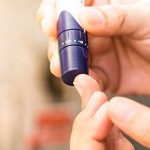
People who are double-jointed might be at increased risk of developing long COVID, a new study reports. Double-jointed folks are 30% more likely to not fully recover from COVID-19 infection, compared with those who are less flexible, researchers report in the journal BMJ Public Health. They also are more likely to experience the persistent fatigue associated with long COVID, results show. These findings demonstrate how COVID attacks different parts of the body, taking advantage of whatever it finds, researchers said. Long COVID is more likely in people with health problems also shared among the double-jointed, researchers noted – fibromyalgia, irritable bowel syndrome, migraine, allergies, anxiety, depression and back pain. The presence of what the researchers called “joint laxity” gives “an important clue to differences in connective tissue composition that can affect multiple bodily systems,” explained the research team. It was led by Dr. Jessica Eccles, a clinical neuroscientist with Brighton and Sussex Medical School in Brighton, U.K. For the study, researchers analyzed data on more than 3,000 participants in a COVID symptom study. About 1 in 3 people said they had not fully recovered from their last bout with COVID, and among them nearly 30% were double-jointed. After accounting for other risks, double-jointedness was strongly associated with a failure to fully recover from COVID infection and higher levels of fatigue. Long COVID is probably a… read on > read on >


















